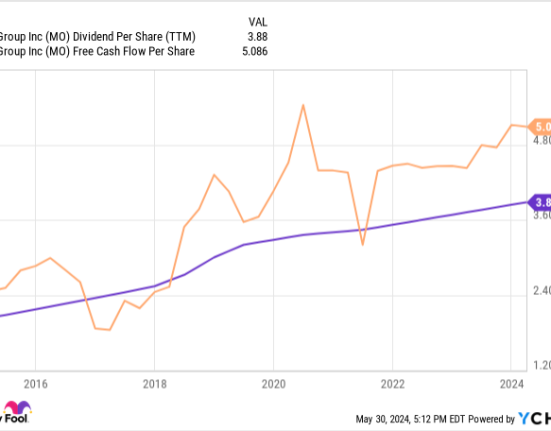
It’s easy to go into panic mode when your income drops significantly. Whether you took on a lower paying job or lost a major client, it can feel like the world is ending, and you’re left clueless as to what to do next.
Thankfully, experts say there are plenty of steps you can take to maintain financial stability.
Find Out: How Much Does the Average Middle-Class Person Have in Savings?
Try This: 5 Unusual Ways To Make Extra Money (That Actually Work)
GOBankingRates spoke with Taylor Kovar, certified financial planner, founder and CEO of 11 Financial, and Scott Lieberman, finance expert and founder at Touchdown Money, to discuss some money moves you can begin taking today to ensure a smoother transition. Read below for their insights.
Wealthy people know the best money secrets. Learn how to copy them.
Begin By Reviewing Your Financial Situation
“With a significant drop in income, it is important to reevaluate and review your financial situation,” said Kovar.
“Begin this evaluation by creating an overview of your income sources; this includes severance pay, unemployment benefits or any other compensation that you may receive.”
Next, he said to list out all of your expenses in categories of fixed expenses, which are mainly constant amounts such as rent or mortgage payments, and variable expenses that tend to be different amounts month to month, such as groceries, utilities and discretionary spending.
“Make note of any debts or other financial obligations such as credit card balances, loan payments or outstanding bills,” he said. “By having a clear picture and understanding of your new income, expenses and financial commitments, you can have clarity on your financial situation and identify any areas that may require attention or change.”
Learn More: How To Generate Passive Income With Just $1,000
Create a Budget
Once you have a clear understanding of your financial status, Kovar said the next step is to create a revised budget tailored to your reduced income.
“Start by prioritizing essential expenses, such as housing, utilities, groceries and healthcare, ensuring that these basic needs are covered first,” he said. “Take a close look at discretionary spending categories, such as dining out, entertainment and non-essential purchases, and identify areas where you can cut back or eliminate expenses.”
Lieberman agrees with this approach. “If you lose your job or take a lower-paying job, there are plenty of options available to make the numbers work.”
“Plug in your new income and see where you have wiggle room and where you might need to cut back,” he explained. “You might find a few things you can drop, such as a TV subscription you don’t use or expenses that aren’t really needed.”
According to Kovar, you should consistently seek out opportunities to save money, whether through shopping for deals, using coupons or exploring cost-saving measures like meal planning and energy conservation. “By reallocating resources and optimizing your budget, you can adapt to changes in income and maintain financial stability.”
Stay Current With Your Bills
“Make sure you stay current with your bills. If you can’t make a payment, call your creditor and see if they’ll work with you,” said Lieberman. “Asking for assistance will usually give you some wiggle room until you can get back on track. Income cuts can be painful, but with the right plan, it doesn’t have to be so bad.”
Explore Alternative Sources of Income
In situations where your income has significantly decreased, Kovar said it may be necessary to explore alternative sources of income to supplement your earnings.
“Look for opportunities to leverage your skills, expertise or hobbies to generate additional revenue streams,” he suggested. “Consider taking on freelance work, consulting projects or part-time employment to boost your income.”
Additionally, he said to consider monetizing assets or resources you already have, such as renting out a spare room or selling items you no longer need. “By expanding your income streams and exploring creative avenues for earning money, you can lessen the impact of reduced income and improve your overall financial stability.”
Stay on Top of Your Insurance Coverage
“During times of financial uncertainty, it’s crucial to review your insurance coverage to ensure adequate protection for yourself and your family,” said Kovar. “Evaluate your health insurance policy to understand your coverage options and any associated costs, such as premiums, deductibles and copayments.”
“Consider whether adjustments to your coverage are necessary based on changes in your financial situation or healthcare needs,” he said.
Similarly, he said to review your life insurance and disability insurance policies to ensure they provide sufficient coverage for your current circumstances. “Consult with an insurance advisor or financial planner to explore potential adjustments to your insurance coverage that can help mitigate financial risks and provide peace of mind during challenging times.”
Seek Out Government Assistance Programs and Benefits
“In situations where your income has been significantly reduced, it’s important to explore available government assistance programs and benefits that can provide temporary relief and support,” Kovar noted. “Research unemployment benefits offered by your state or jurisdiction and determine your eligibility for financial assistance.”
Additionally, he advised investigating other forms of government aid, such as housing assistance, food stamps or healthcare subsidies, which can help cover essential expenses during times of financial hardship.
“Be proactive in exploring your options and accessing available resources to help bridge the gap until your financial situation improves,” he said. “Keep in mind that government assistance programs are designed to provide support to individuals facing financial challenges and can offer valuable assistance during times of need.”
More From GOBankingRates
This article originally appeared on GOBankingRates.com: I’m a Financial Expert: 6 Money Moves To Make If Your Income Drops Significantly







